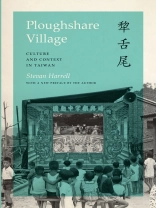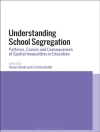This anthropological study of a workers’ village in North Taiwan makes an important contribution to the comparative literature on Chinese and Taiwanese social organization. Based on fieldwork conducted in 1973 and 1978, the study is exceptional not only because of its excellent data but also because the village itself was unique. Unlike villages previously studied and written about, Ploughshare was neither an agricultural nor a fishing village, but rather one whose inhabitants earned their living mostly from coal mining, knitting, and other non-agrarian activities. Culture and environmental context thus shaped social organization there differently than in other Taiwanese villages. This ethnography links local data to surrounding socioeconomic spheres: it shows the village’s relationship to its region, to Taiwan as a whole, and to the international economy. It also captures an important point in time, as Taiwan was undergoing the “economic miracle” that brought it into the ranks of developed countries. Stevan Harrell’s new preface highlights changes not only in the village over the last several decades, but also in the ways that anthropologists think about culture and Taiwan.
Ploughshare Village, with its rich descriptions and analyses, will be of value to anthropologists, sociologists, economists, and China specialists.
表中的内容
List of Illustrations
Preface to the 2015 Edition
A Note on Romanization
Introduction
1. Ploughshare in the Socioeconomic System
2. The Changing Nature of Work
3. Social Inequality
4. Community Relations
5. Family Organization
6. The Organization of Religion
Conclusion
Glossary
Bibliography
Index
关于作者
Stevan Harrell is professor emeritus of anthropology and environmental and forest sciences at the University of Washington. He is the author of Ways of Being Ethnic in Southwest China (University of Washington Press, 2001) and An Ecological History of Modern China (University of Washington Press, 2023); and editor of the University of Washington Press book series Studies on Ethnic Groups in China.












